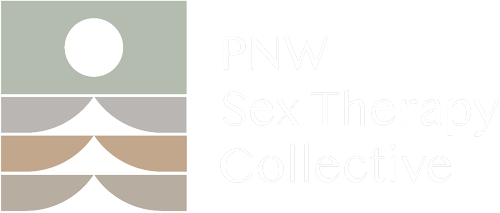In the US, the stigma surrounding sexual and reproductive health can profoundly impact laws, policies, people’s perceptions, and society. These social norms can negatively impact an individual’s view of their sexuality and their relationship with themselves.
We often forget that our sexuality is more than just an act of physical gratification—it can be used to help us become more deeply in touch with ourselves. By uncovering what brings us pleasure gives us insight into our deepest fears, needs, and desires– it empowers us to live a better life.
Continue reading to learn more about how sex and pleasure can be a vehicle for self-exploration and how we can work towards removing the stigma surrounding sexuality.
Defining Sex and Pleasure
Sex and pleasure are interrelated concepts, as sex should bring pleasure. What does this mean? Sexual pleasure can be experienced in various ways, including physical sensations such as touch, arousal, and orgasm, as well as emotional and psychological factors such as intimacy, connection, and desire.
Sex and pleasure are closely intertwined because sexual behavior can be a source of pleasure for individuals. Engaging in sexual activity can activate the release of certain hormones, such as dopamine and oxytocin, associated with feelings of pleasure, satisfaction, and attachment (feelings of closeness). Sexual pleasure can also strengthen emotional and physical bonds between partners and enhance overall well-being through what Dr. John Gottman calls “turning towards” our partners for connection.
However, it is important to note that sex and pleasure can exist independently and that sexual behavior should always be consensual and respectful of all parties involved.
The Disconnection Between the Self and One’s Sexuality
Many people struggle with understanding their bodies, desires, and boundaries. This disconnection can stem from several sources, including a lack of awareness or shame surrounding pleasure.
In such cases, this disconnection can create an impasse in realizing our full potential as sexual beings and understanding how we can use sex and pleasure to explore ourselves.
Using Sex and Pleasure for Self-Exploration
Sexual experiences can be a valuable way to gain insight into oneself. Sexual pleasure is complex and multifaceted, involving physical, emotional, and psychological factors. By exploring what feels good and what doesn’t, you can learn about your preferences and desires, as well as your limitations and boundaries.
Through this process, you can better understand yourself and your sexuality. However, it is important to approach sexual exploration and pleasure with a mindful and intentional mindset. We call this developing a person’s sexual intelligence. Engaging in sexual behavior without proper education, preparation, and communication can lead to adverse outcomes such as unwanted pregnancies, sexually transmitted infections, and emotional harm or confusion.
Breaking Stigma and Promoting Awareness
Breaking the stigma surrounding sex and pleasure is essential to promoting healthy sexual attitudes and behaviors. Sexual desires and experiences are a natural part of human existence, and everyone has the right to explore and enjoy their own sexuality without fear of judgment or shame.
At PNW Sex Therapy Collective, we believe there are a few key strategies to help promote awareness of sex and pleasure. First, providing accurate and comprehensive information about sexual health, consent, and pleasure can help dispel myths and misconceptions.
Talking openly and honestly about sex and pleasure can also help normalize these topics and reduce feelings of shame or embarrassment. When there is empathy and respect for everyone, people can explore their sexuality more freely and responsibly. This also encourages individuals to get sex therapy.
Consult an Experienced Sex Therapist
The sex therapists at PNW Sex Therapy Collective can provide information, support, and tools to help you in your self-exploration through sex and pleasure. Sex and pleasure are powerful vehicles for understanding ourselves better—and if explored with openness, respect, and curiosity to learn, they can lead us on our unique paths toward greater fulfillment inside and outside the bedroom.
Contact us for an appointment.




